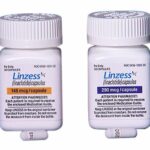How Long Does It Take For Plenvu To Kick In?

Plenvu is a bowel preparation medication. It makes your bowels clean so that they are ready for examination or surgery. Plenvu works by emptying the contents of your bowels, so you should expect to have lots of watery bowel movements.
Plenvu is a dual flavoured laxative with two doses contained in three sachets. There is one sachet for Dose 1 (‘Dose 1 Sachet’) and two sachets for Dose 2 (‘Dose 2 Sachet A’ and ‘Dose 2 Sachet B’). You need to take all three sachets for one treatment. Dose 1 is mango flavour, Dose 2 is fruit punch flavour.
Plenvu is intended for adults (18 years of age and older), including the elderly, before any clinical procedure that needs a clean bowel. Ask your doctor if you have any questions about why this medicine has been recommended for you.
Before you start to take it
To maintain good health, you should hydrate adequately before the use of any bowel preparation. If you develop significant vomiting, or signs of fluid loss (dehydration) tell your doctor, see ‘Side Effects’ section.
Tell your doctor if you have allergies to any other medicines, foods, preservatives or dyes.
Tell your doctor, pharmacist or nurse before taking Plenvu if any of the points below apply to you. If you:
- have an allergy to any of the ingredients in Plenvu
- have heart problems and/or heart rhythm problems
- have kidney problems
- have problems with swallowing
- have a high or low blood salt level (e.g. sodium, potassium)
- have diabetes or any other medical condition.
When you must not take it
If you are in poor health or have a serious medical condition, you should be particularly aware of the possible side effects listed in the ‘Side Effects’ section. Contact your doctor, pharmacist or nurse if you are concerned.
Do not take Plenvu:
- if you are allergic (hypersensitive) to the active ingredients or any of the other ingredients of Plenvu (listed in ‘Product Description’)
- if you have a blockage in your bowel (bowel obstruction)
- if you have an opening in the wall of your stomach or bowel (bowel perforation)
- if you experience problems with food and fluid emptying from your stomach (gastric retention)
- if you have paralysis of the gut (ileus)
- if you suffer from phenylketonuria. This is a hereditary inability of the body to use a particular amino acid. Plenvu contains a source of phenylalanine
- if your body is unable to produce enough glucose-6-phosphate dehydrogenase
- if you have severe inflammatory bowel disease, like ulcerative colitis, Crohn’s disease, or toxic megacolon
- if you have severe dehydration
- if you have a decreased level of consciousness unless you have suitable medical supervision.
Do not take this medicine after the expiry date printed on the pack or if the packaging is torn or shows signs of tampering. If it has expired or is damaged, return it to your pharmacist for disposal.
If you are not sure whether you should start taking this medicine, seek medical advice.
Tell your doctor if you are pregnant or plan to become pregnant. Your doctor can discuss with you the risks and benefits involved.
Tell you doctor if you are breastfeeding. It is not known if Plenvu passes into your breast milk. You and your doctor should decide if you will take Plenvu while breastfeeding.
If you have not told your doctor about any of the above, tell him/her before you start taking Plenvu.
.
Taking other medicine
Tell your doctor, pharmacist or nurse if you are taking, have recently taken or might take any other medicines (e.g. oral contraceptives, diuretics, calcium channel blockers, corticosteroids), as well as any medication you get without a prescription from your pharmacy, supermarket or health food shop.
Medicines taken by mouth may not be absorbed properly when taken within 1 hour before the start of Plenvu.
Your doctor and pharmacist have more information on which medicines to be careful with or avoid while taking this medicine.
If you need to thicken fluids in order to swallow them safely, Plenvu may counteract the effect of the thickener.
Plenvu with food and drink
Continue to drink clear fluids before, during, and after you take Plenvu, to help prevent fluid loss (dehydration). It is important for you to drink the additional recommended amounts of clear fluids. Examples of clear fluids are water, clear soups, herbal tea, black tea or coffee (without milk), soft drinks/diluted cordials and clear fruit juices (without pulp).
When taking Plenvu, you should continue to take plenty of clear fluids. The fluid content of Plenvu does not replace your regular fluid intake.
Important: Do not drink alcohol, milk, anything colored red or purple (e.g. blackcurrant juice) or any other drinks containing pulp material and do not eat while taking Plenvu and until after your clinical procedure.
Two-day split dosing schedule and day before dosing schedule
On the day before the clinical procedure, you can eat a light breakfast followed by a light lunch and must finish eating this meal at least 3 hours before you start taking Plenvu, after which you may only consume clear fluids.
Morning only dosing schedule
On the day before the clinical procedure, you can eat a light breakfast followed by a light lunch, and clear soup and/or plain yogurt for dinner (which should be completed by approximately 8 pm). You may only consume clear fluids from after dinner on the evening before the clinical procedure. No breakfast is allowed on the morning of the clinical procedure.
Your Doctor may give you additional dietary advice which you should follow.
How to take Plenvu
Unless your doctor has given you specific instructions, please follow these dosage and dietary instructions. Check with your doctor, pharmacist or nurse if you are not sure.
You must read, understand and follow the instructions for use.
Your doctor may prescribe the two-day split dosing schedule, the morning only dosing schedule or the day before dosing schedule depending on the scheduling of your clinical procedure.
Before you take Plenvu, please read carefully the following instructions. You need to know:
- When to take Plenvu
- How to prepare Plenvu
- How to drink Plenvu
- What you should expect to happen
When to take Plenvu
Your treatment with Plenvu must be completed before your clinical procedure.
This course of treatment may be taken as divided doses as described below:
Two-day split dosing schedule
Take 500 mL of Dose 1 of Plenvu (followed by an additional 500 mL of clear fluid) in the evening before the clinical procedure (at approximately 6 pm) and 500 mL of Dose 2 of Plenvu (followed by an additional 500 mL of clear fluid) in the early morning of the day of the clinical procedure (approximately 6 am), or
Morning only dosing schedule
Take 500 mL of Dose 1 of Plenvu (followed by an additional 500 mL of clear fluid) and 500 mL of Dose 2 of Plenvu (followed by additional 500 mL of clear fluid) in the morning of the day of the clinical procedure (Dose 1 at approximately 5 am); the time between finishing the first dose and starting the second dose should be separated by a minimum 1 hour interval, or
Day before dosing schedule
Take 500 mL of Dose 1 of Plenvu (followed by an additional 500 mL of clear fluid) and 500 mL of Dose 2 of Plenvu (followed by an additional 500 mL of clear fluid) in the evening of the day before the clinical procedure (Dose 1 at approximately 6 pm); the time between finishing the first dose and starting the second dose should be separated by a minimum 1 hour interval.
Your doctor will tell you which dosing schedule to follow. DO NOT add any other ingredients to the doses.
How to prepare Plenvu Dose 1
- Open the carton and remove the Dose 1 sachet.
- Pour the contents of Dose 1 into a measuring container that can hold 500 mL of fluid.
- Add water (not chilled) to make up to 500 mL and stir until all the powder has dissolved. This may take up to approximately 8 minutes.
How to drink Plenvu Dose 1
Drink the 500 mL Plenvu Dose 1 solution slowly over 30 minutes. Try to drink a glassful every 10 to 15 minutes. Drink an additional 500 mL of clear fluid over the next 30 minutes. Water, clear soup, diluted cordials/clear fruit juice (without pulp), herbal tea, black tea or coffee (without milk) are all suitable.
How to prepare Plenvu Dose 2
- When you are ready to take Dose 2 pour the contents of Dose 2 Sachet A and Dose 2 Sachet B into a measuring container that can hold 500 mL of fluid.
- Add water (not chilled) to make up to 500 mL and stir until all the powder has dissolved. This may take up to approximately 8 minutes.
How to drink Plenvu Dose 2
At the time you were given, based on the recommended dosing schedule, drink the 500 mL Plenvu Dose 2 solution slowly over 30 minutes. Drink an additional 500 mL of clear fluid over the next 30 minutes.
In addition to Plenvu and the additional clear fluid after each dose, you are encouraged to drink extra clear fluid as needed to avoid thirst. Drinking clear fluids will help prevent fluid loss (dehydration). You must stop drinking all fluids at least 2 hours prior to your clinical procedure. Your doctor should tell you your ‘NIL BY MOUTH’ time.
How Long Does It Take For Plenvu To Kick In?
When you start drinking the Plenvu solution, it is important that you stay close to a toilet. At some point, you will start to experience watery bowel movements. Some people will begin to have multiple urgent bowel movements within 30 minutes of drinking the solution and others may not have a bowel movement for 3-4 hours. This is quite normal and indicates that the Plenvu solution is working. You may have stomach area bloating before you have your first bowel movement.
If you follow the label instructions, your bowel will be clean, and this will help you to have a successful clinical procedure. You should allow sufficient time after your bowel movements have subsided to travel to the clinic/ hospital.
How long does plenvu make you poop?
Every body is different, and everyone will experience Plenvu’s bowel stimulating effects differently. Nevertheless, bowel movements can take up to 5-6 hours after beginning the prep to start. Be patient, continue to drink liquids. If you have not had a bowel movement by midnight the night prior to your procedure, you will need to reach the on call physician for further instructions.
If you forget to take it
If you forget to take Plenvu as instructed, take it as soon as you realize you have not taken it and contact your doctor, pharmacist or nurse for advice prior to the clinical procedure. It is important that you have allowed sufficient time to complete your course of Plenvu in order to ensure your bowel is fully cleaned at least 2 hours prior to the clinical procedure.
If you have any further questions on the use of this medicine, ask your doctor, pharmacist or nurse.
If you take too much (overdose)
Seek emergency medical attention or call the Poison Help line at 1-800-222-1222.
While you are using Plenvu
Things you must do
Tell any other doctors, dentists, and pharmacists who treat you that you are taking this medicine.
Things you must not do
Do not use Plenvu for any other conditions unless your doctor tells you to.
Do not give your medicine to anyone else, even if they have the same condition as you.
Side effects
Tell a doctor or pharmacist as soon as possible if you do not feel well while you are using Plenvu.
All medicines can have unwanted effects. Sometimes they are serious, most of the time they are not. Do not be alarmed by this list of possible side effects. You may not experience any of them.
Ask a doctor or pharmacist to answer any questions that you may have.
It is normal to get diarrhoea when you take Plenvu. If you do not have a bowel movement within 6 hours of taking Plenvu, stop the intake and contact your doctor immediately.
As with other medicines, there is a small risk of serious allergic reactions. Stop your intake and tell your doctor immediately or go to the Accident & Emergency department of your nearest hospital if you notice any of the following side effects, as these may be symptoms of a severe allergic reaction:
- extreme fatigue
- palpitations
- sudden or severe itching, skin rash, hives
- shortness of breath, asthma, wheezing
- swelling of your face, lips or tongue (which may make swallowing or breathing difficult), ankles or other part of your body
Tell your doctor immediately if you have any of these symptoms of a loss of too much body fluid (dehydration) while taking Plenvu:
- confusion
- dizziness
- excessive thirst
- headache
- urinating less often than normal or dark coloured urine
- vomiting
Also, tell your doctor right away if you have severe stomach-area (abdomen) pain.
If you experience sudden abdominal pain or rectal bleeding when taking Plenvu for bowel preparation, contact your doctor or seek medical advice immediately.
Rarely, serious heart rhythm problems may occur (i.e. heart may feel like it’s pounding, fluttering or beating irregularly, often for a few seconds or possibly a few minutes) with the use of laxatives for bowel preparation, especially in patients with underlying heart disease or salts disturbance.
Other side effects by frequency:
Common side effects (may affect up to 1 in 10 people): Dehydration, nausea (feeling sick), vomiting.
Uncommon side effects (may affect up to 1 in 100 people): Abdominal bloating and pain, aches and pains, allergic reaction, chills, fatigue, headache or migraine, hot flushes, increased blood glucose level in diabetic patients, increased heart rate, palpitations, soreness of the anus, sleepiness, temporary increase in blood pressure, temporary increase in liver enzymes, thirst, various salt (electrolyte) imbalances and weakness.
You also may be feeling generally unwell.
Tell your doctor or pharmacist if you notice anything that is making you feel unwell.
Other side effects not listed above may also occur in some people.
Storage
Keep it where children cannot reach it. A locked cupboard at least one-and-a-half metres above the ground is a good place to store medicines.
Do not use this medicine after the expiry date which is stated on the sachets and carton, after “EXP”. The expiry date refers to the last day of that month.
Please note that the expiry dates may be different for each of the sachets and carton.
Before use, store Plenvu sachets below 25°C. After you have dissolved Plenvu in the water, the solution may be stored (keeping covered) at or below 25°C. It may also be stored in the refrigerator (2°C to 8°C). Do not keep it for more than 24 hours.
Do not store Plenvu or any other medicines in the bathroom or near a sink. Do not leave it on a window sill or in the car. Heat and dampness can destroy some medicines.
Disposal
If your doctor tells you to stop taking this medicine or the expiry date has passed, ask your pharmacist what to do with any medicine that is left over.





